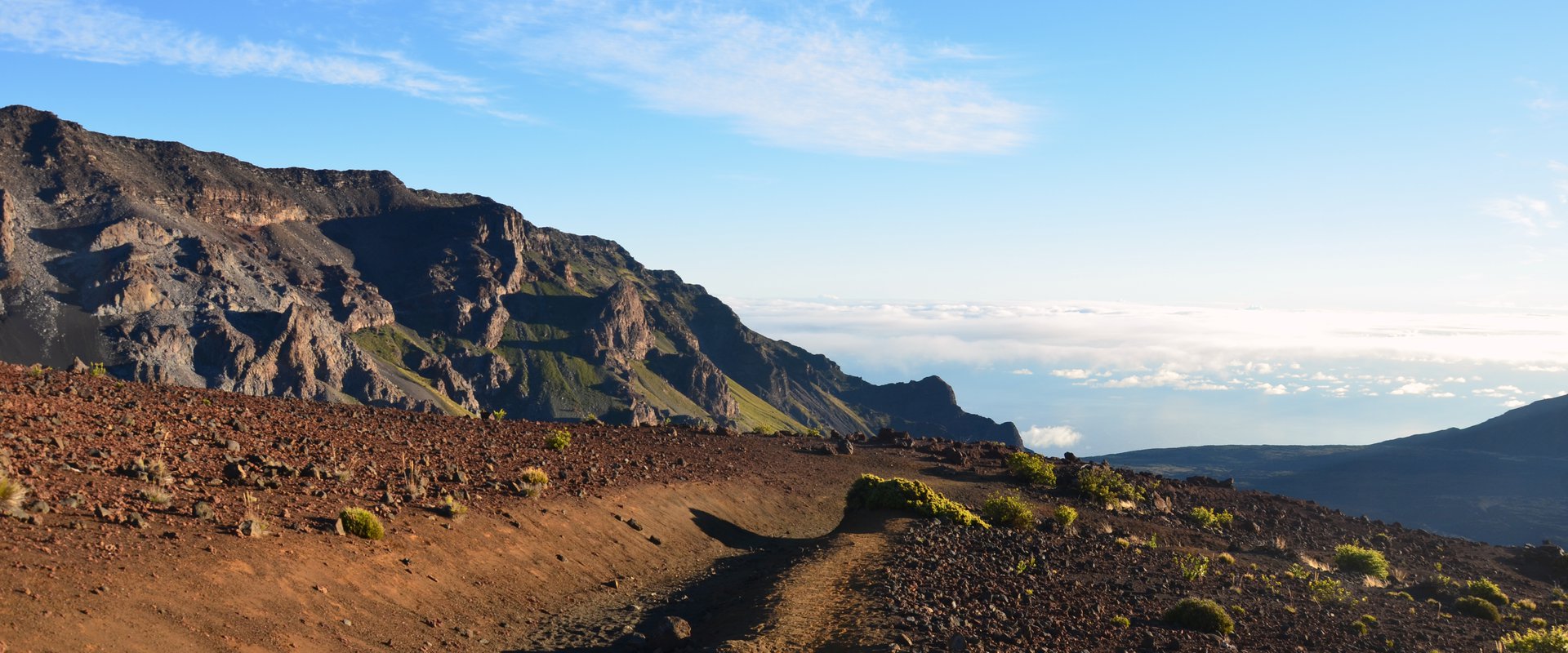Bachelor Geography
Geography is a broad-based discipline and combines social and natural science issues and methods. In particular, the interactions between society and space characterise modern geography as an integrative spatial and environmental science. Its task is to develop concepts for understanding the solution of problems between humans and the environment. Geography addresses extremely current research issues and central future topics of mankind, such as climate change, environmental degradation or regional disparities. Its fields of application range from climate modelling and soil analysis to environmental and resource management through to urban and regional development.
Profile
Degree: Bachelor of Science Language of instruction: german Start: Winter semester is recommended; however, start in summer semester is also possible. Duration: 6 semesters standard period of study Limited admission: no Application deadline: May 15 (summer semester) and September 30 (winter semester) |
Course contents
The accredited bachelor of science degree course in geography imparts the scientific fundamentals of all subareas of physical geography and human geography. The students set their own priorities by choosing their teaching sessions in physical geographical (climate, bio, hydrogeography, geomorphology, soil science) or human geographical (human-environment relationships, population, economy, city, power and space) topics.
Learning specific work methods by way of practical examples is essential for employment market opportunities. These include quantitative and qualitative methods, laboratory and field methods as well as, for example, remote investigation, geoinformatics, geostatistics, cartography, moderation, planning techniques and project management. The large breadth of the methodological education is a trademark of this course offer.
Starting a course in the winter semester is recommended, as starting in the summer semester could lead to study delays. The standard study period for the bachelor of science in geography is 6 semesters. Diverse master of science courses based on this are available to graduates in Augsburg or at numerous other universities.
Qualification objectives
- Deepening knowledge of geography
Acquiring the most important scientific fundamentals across the whole width of the subject geography - Extension of knowledge
Widening and deepening knowledge and understanding beyond the limits of geography by choosing additional subjects from a broad curriculum - Acquisition of strong methodical competence
Knowledge about the width of the methods used, the acquisition and practising of fundamental methods and the competence of applying these methods in specific projects
Acquisition of soft skills such as ability to work in a team, sense of responsibility, self-initiative and ability to communicate.
Ability of critical reflective classification of social processes as cornerstones for subsequent applicability of the acquired knowledge in one’s career.
Stays abroad
A special feature of this course is the possibility of spending an integrated semester abroad. To this end, worldwide cooperation exist on a university and on a professional level. The compulsory work placement can also be carried out abroad.
Course structure
The course starts with an introduction to scientific work methods and the history of geography. At the same time, the fundamentals of physical and human geography as well as the methods of geography are taught. The first teaching sessions on regional geography can be attended in the second semester, in general these are the first field trips.
From the third semester, the methods are dealt with in greater depth and the fundamental knowledge is applied to specific events. The first optional subjects are also then taken. The choice of direction of specialisation and the teaching sessions chosen for it allow further study profiling. The work placement should be undertaken between the fifth and sixth semester. This is followed by the bachelor dissertation and possibly a further optional subject.
In the application, in-depth and to a certain extent the regional geography module groups, students can select a module from the teaching sessions offered based on their personal interests. Individual profile building also takes place in the optional subjects and the choice of work placement location as well as the topic of the bachelor degree dissertation.
B.Sc. course structure Geography PO2013

Areas of study
- Biogeography
- Soil science
- Renewable energy
- Geoinformatics
- Hydrology
- Climate research
- Rural space
- Landscape research
- Political ecology
- Urban geography
- Transformations in the Global South
- Economic geography
Optional subjects
We recommend that the optional subjects be taken from the third semester. You are fairly free in your choice of optional subjects. 4 optional subject modules should be taken in at least 2 optional subjects. It is possible to take 4 modules from 4 different optional subjects or from the minimum of 2 optional subjects. The following optional subject modules can be chosen at the University of Augsburg.
Optional subject modules, which are suitable for both areas of study:
- Geoinformatics
- Informatics
- Mathematics for geographers
- New energy sources
- Resource strategy
Focus on human geography:
- European ethnology
- Culture management
- Political science
- Regional planning & federal state planning
- Sociology
- Site development
- Economics
Focus on physical geography:
- Soil science
- Geobotanics
- Geology
- Hydrology
- Physics of the atmosphere
Other optional subjects are possible (including at other universities), however, they require special approval by the examination board. If you have any questions concerning the content of the optional subjects, please contact the person responsible for the module (see Module catalogue).


